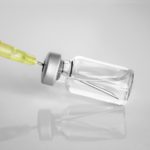 According to the latest CARES trial, the Gout drug Febuxostat (Uloric) failed up against Allopurinol when it came down to a combined rate of fatal and nonfatal adverse events for those that suffer with both Gout and Cardiovascular disease. In fact, there was a significant increased risk of death for those that took this drug for Gout while also suffering from heart disease.
According to the latest CARES trial, the Gout drug Febuxostat (Uloric) failed up against Allopurinol when it came down to a combined rate of fatal and nonfatal adverse events for those that suffer with both Gout and Cardiovascular disease. In fact, there was a significant increased risk of death for those that took this drug for Gout while also suffering from heart disease.
The trial was mandated by the FDA and consisted of 6,190 patients, 84% of which were men. Cardiovascular risk is naturally increased in patients with Gout. The study was attempting to look at any difference in outcome for these patients taking Febuxostat, a nonpurine xanthine oxidase inhibitor, or those taking Allopurinol, a purine base analogue xanthine oxidase inhibitor. The patients were followed for a median of 32 months, and a maximum of 85 months. Without diving into all of the ratio statistics, the all-cause and cardiovascular mortality rate was higher in the Febuxostat group, 34% and 22% higher respectively. Continue reading “New evidence of increased risk of death with Febuxostat (Uloric)”
 Regular physical activity can offer us a multitude of health benefits. Recent studies show just 20 minutes a day can produce anti-inflammatory effects, adding to the already lengthy list of how fitness can support our bodies. That’s right! In addition to reducing heart disease, lowering
Regular physical activity can offer us a multitude of health benefits. Recent studies show just 20 minutes a day can produce anti-inflammatory effects, adding to the already lengthy list of how fitness can support our bodies. That’s right! In addition to reducing heart disease, lowering 
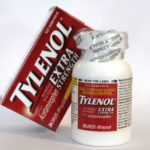 Acetaminophen (also labeled as Paracetamol, or more commonly known as
Acetaminophen (also labeled as Paracetamol, or more commonly known as 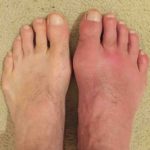 Gout affects an estimated 4% of the population, or around 1 in 25 people. Evidence suggests this number is growing and is certainly affecting a larger demographic than in the past. A lot of confusion has surrounded the specifics on how high levels of
Gout affects an estimated 4% of the population, or around 1 in 25 people. Evidence suggests this number is growing and is certainly affecting a larger demographic than in the past. A lot of confusion has surrounded the specifics on how high levels of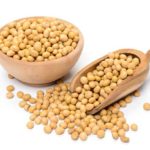 Soy can provide a significant amount of protein,
Soy can provide a significant amount of protein,  Just how bad are fake sugars for you? Let’s just start by making you aware that saccharin was discovered over 150 years ago by a chemist working with coal tar. Coal tar — you know, a well-known carcinogenic material. Studies dating back to the 1970’s concluded that saccharin was linked to bladder cancer in laboratory rats. If that isn’t evidence enough…… Yet, a gazillion conflicting studies later and we still have an issue that remains under intense debate. Saccharin is sold under brand names such as Sweet and Low
Just how bad are fake sugars for you? Let’s just start by making you aware that saccharin was discovered over 150 years ago by a chemist working with coal tar. Coal tar — you know, a well-known carcinogenic material. Studies dating back to the 1970’s concluded that saccharin was linked to bladder cancer in laboratory rats. If that isn’t evidence enough…… Yet, a gazillion conflicting studies later and we still have an issue that remains under intense debate. Saccharin is sold under brand names such as Sweet and Low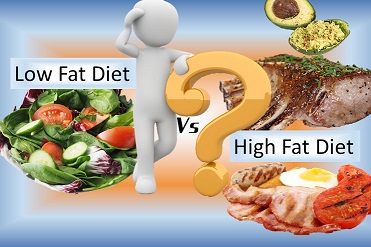
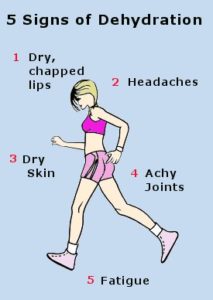 Yes. Proper hydration is a fundamental requirement to maintain the health of our bodies. Our bodies are 75% water and 25% solid matter. Water is needed to eliminate waste and provide nourishment, in addition to regulating billions of other activities in the body. Hydration takes place when the minerals connect with water and provide electrolytes, cellular fluids, and tissue balance. This balance is crucial to preserve the electrical charge of our cells, as well as maintain a
Yes. Proper hydration is a fundamental requirement to maintain the health of our bodies. Our bodies are 75% water and 25% solid matter. Water is needed to eliminate waste and provide nourishment, in addition to regulating billions of other activities in the body. Hydration takes place when the minerals connect with water and provide electrolytes, cellular fluids, and tissue balance. This balance is crucial to preserve the electrical charge of our cells, as well as maintain a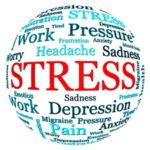 We all know that stress can cause ailments such as difficulty sleeping, muscle tension, changes in appetite, headaches, stomach problems, panic attacks, and prolonged feeling of sadness or worthlessness. But, did you also know that stress can literally alter the cells in our body and lead to chronic
We all know that stress can cause ailments such as difficulty sleeping, muscle tension, changes in appetite, headaches, stomach problems, panic attacks, and prolonged feeling of sadness or worthlessness. But, did you also know that stress can literally alter the cells in our body and lead to chronic